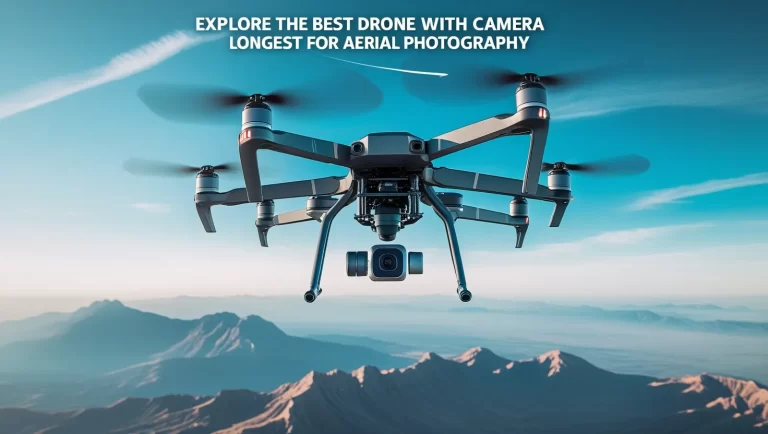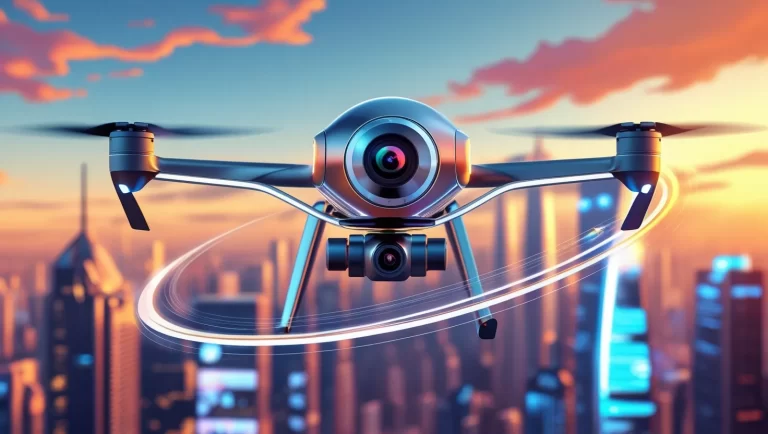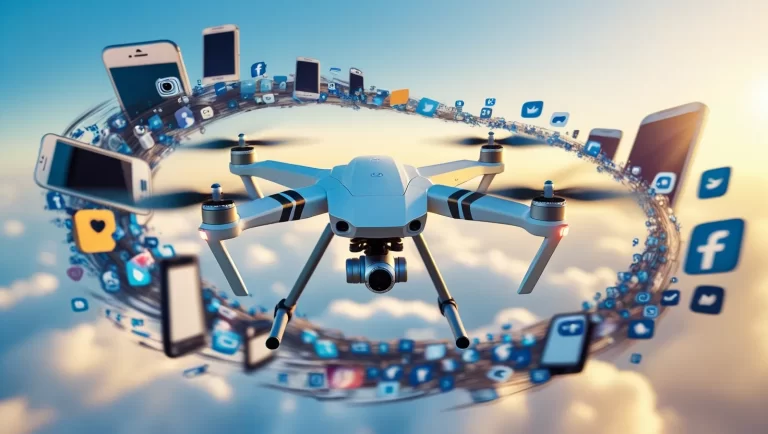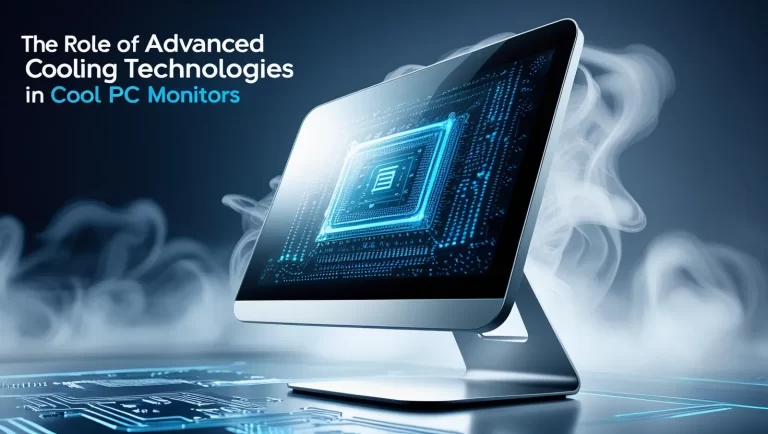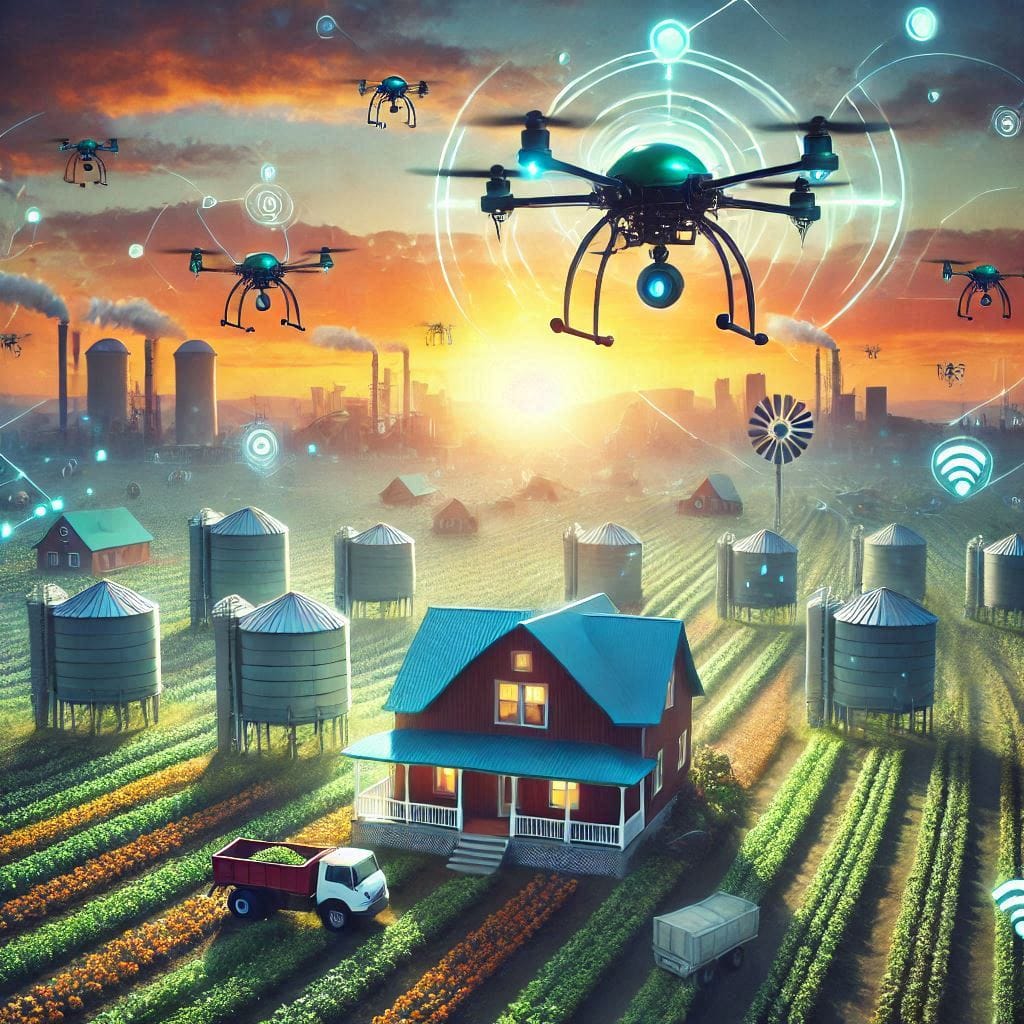
Future of Farming: The Impact of Drone Technology for Agriculture on Food Security-As the global population continues to grow and climate change increasingly affects agricultural practices, food security has become one of the most pressing concerns for governments, organizations, and farmers worldwide. The traditional farming methods that once sustained humanity are being tested by unpredictable weather, water scarcity, and the growing demand for food. However, a technological revolution is underway that promises to transform farming and ensure food security for future generations: drone technology for agriculture.
Drones, once a tool used primarily for military or recreational purposes, are now becoming indispensable in the agricultural sector. With their ability to gather precise data, monitor crop health, and optimize resource usage, drones are changing the way we farm. Let’s explore how drone technology is shaping the future of farming and its critical role in ensuring food security for a growing world.
Revolutionizing Crop Monitoring and Health Management
One of the main ways drone technology for agriculture impacts food security is by enhancing crop monitoring and health management. Farmers need to be able to assess the health of their crops efficiently and accurately to prevent widespread losses from diseases, pests, or environmental stressors. Traditionally, farmers would inspect crops manually or rely on satellite imagery, which often lacked the precision needed for early intervention.
Drones equipped with multispectral cameras and sensors can capture high-resolution, real-time images of crops, allowing farmers to monitor crop conditions at a level of detail that was previously impossible. Drones can detect early signs of disease, pest infestations, or nutrient deficiencies, enabling farmers to act quickly and apply targeted treatments. By preventing large-scale crop failures, drones help ensure that harvests are plentiful and contribute to food security.
Precision Agriculture: Maximizing Yields with Minimal Resources

With the world’s population expected to reach nearly 10 billion by 2050, the need for efficient and sustainable farming practices is more urgent than ever. Precision agriculture, powered by drone technology for agriculture, is one of the most effective solutions to this challenge. Precision farming involves using data-driven insights to make decisions about planting, irrigation, fertilization, and pest control. Drones provide the necessary data that allows farmers to make these decisions with pinpoint accuracy.
For example, drones can measure soil moisture levels, identify areas of the field that need more irrigation, and detect variations in soil health. By applying water and fertilizers only to the areas that require them, farmers can reduce waste, lower input costs, and optimize crop yields. This targeted approach helps maximize food production while conserving precious resources like water, which is especially important in regions experiencing water scarcity. Through precision farming, drones play a key role in producing more food with fewer resources, which is essential for global food security.
Enhancing Irrigation Efficiency and Water Conservation
Water scarcity is one of the most significant challenges to agriculture, particularly in arid regions and areas affected by climate change. Traditional irrigation systems often result in water wastage, either due to overwatering or inefficient coverage. Drone technology for agriculture is helping to address this issue by enabling more efficient and precise irrigation.
Drones equipped with thermal and multispectral sensors can identify areas of the field that are under or over-watered, providing farmers with real-time data to adjust irrigation systems accordingly. This data-driven approach ensures that water is used only where it is needed, significantly reducing waste and conserving this vital resource. By promoting water-efficient irrigation practices, drones help ensure that farmers can continue to produce food even in areas with limited water supplies, contributing to global food security. (Read More: How Zen Technology Drone is Redefining Precision in Industrial Inspections)
Boosting Pest and Disease Management

Pest infestations and plant diseases can cause devastating losses in crop yields, threatening food security in many parts of the world. Traditional methods of pest control, such as widespread pesticide application, can be inefficient, costly, and harmful to the environment. Drone technology for agriculture is revolutionizing pest and disease management by providing farmers with detailed aerial imagery that can help detect problems early.
Drones equipped with high-resolution cameras and multispectral sensors can fly over fields and capture images that reveal early signs of pests or diseases, often before they are visible to the naked eye. By identifying problem areas quickly, farmers can apply pesticides or other treatments only to the affected areas, reducing the need for widespread chemical applications. This targeted approach not only lowers costs but also minimizes the environmental impact, promoting more sustainable farming practices that support long-term food production. (Read More: Top 5 Benefits of Using Drone Technology for Agriculture in 2024)
Supporting Smallholder Farmers and Global Food Security
While large-scale industrial farms have benefited the most from drone technology for agriculture, smaller farms are also beginning to embrace this technology. In many developing countries, smallholder farmers make up a large portion of the agricultural workforce, yet they often face significant challenges in terms of access to resources, technology, and expertise. Drones can level the playing field by providing smallholder farmers with affordable, efficient tools to optimize their farming practices.
For example, drones can help small farmers monitor their crops, manage irrigation, and reduce input costs, all of which can significantly improve crop yields and income. Furthermore, as drones become more affordable and accessible, smallholders will be able to adopt precision farming techniques, contributing to the global effort to ensure food security. By empowering smallholder farmers, drones play an essential role in improving food production at a global scale. (Read More: Revolutionizing Farming: How Drone Technology for Agriculture Is Transforming the Industry)
The Role of Drone Technology in Sustainable Agriculture
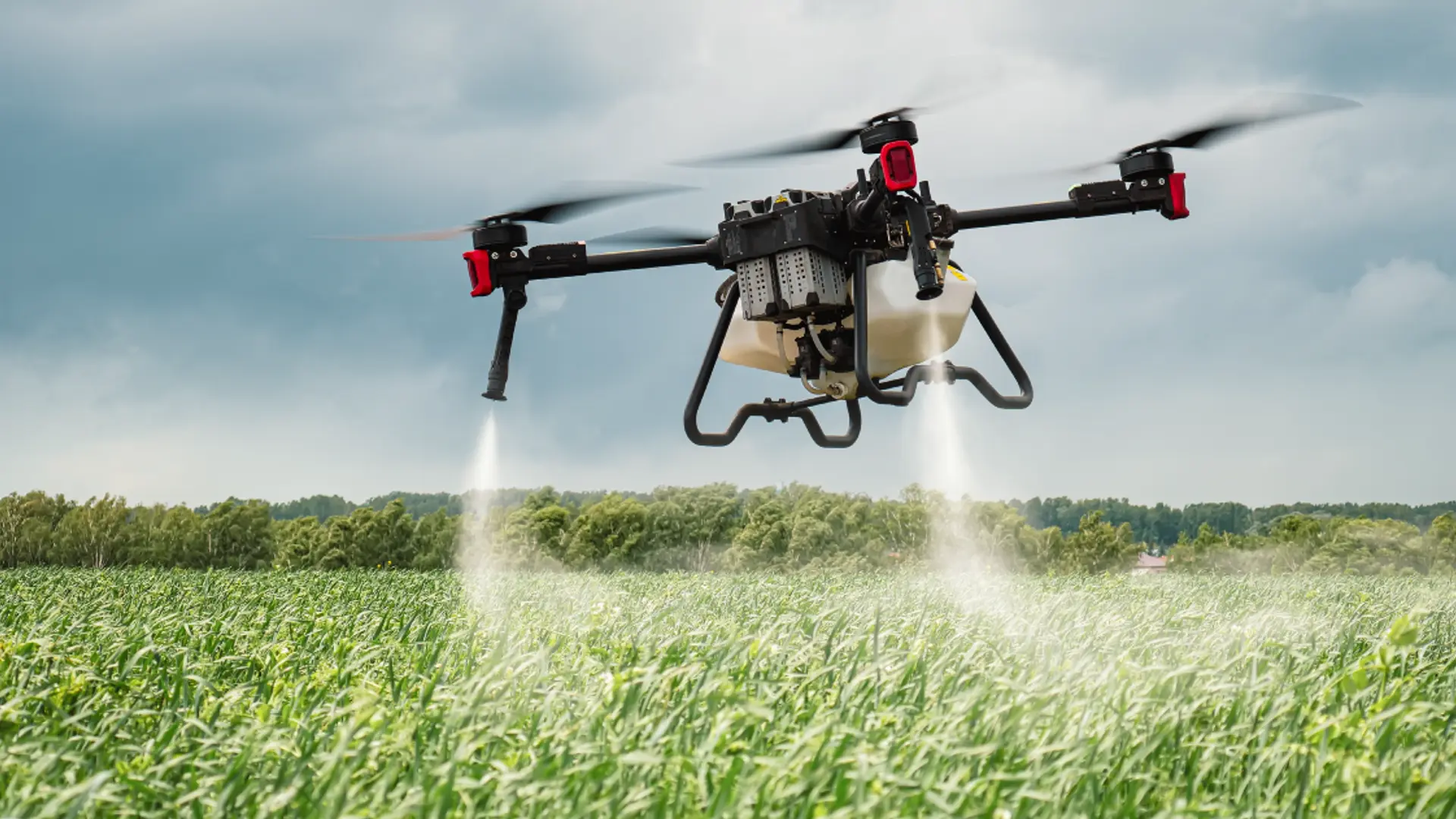
Sustainability is a key component of global food security, as the long-term health of the environment is directly tied to the ability of farmers to produce food. Drone technology for agriculture contributes to sustainability by reducing the need for excessive pesticide use, conserving water, and minimizing soil degradation. By enabling more efficient and environmentally friendly farming practices, drones help ensure that agriculture can meet the needs of the growing global population without depleting natural resources.
Moreover, drones are also being used to monitor soil health, detect changes in crop growth patterns, and assess the impact of climate change on farming. This data helps farmers adapt their practices to changing environmental conditions, ensuring that they can continue to produce food in the face of climate uncertainty.
Conclusion article Future of Farming: The Impact of Drone Technology for Agriculture on Food Security
Drone technology for agriculture is not just a technological advancement; it is a key enabler of food security in the 21st century. By enhancing crop monitoring, improving irrigation efficiency, and enabling precision farming, drones are helping farmers produce more food with fewer resources. Additionally, drones are playing an essential role in sustainable farming practices, contributing to the long-term health of the planet while ensuring that agriculture can meet the demands of a growing population.
As drone technology continues to evolve and become more accessible, its impact on global food security will only increase. For the farmers of tomorrow, drones will be an indispensable tool in ensuring that the world has enough food to sustain future generations. In this way, drones are not just changing the future of farming—they are safeguarding the future of our food supply.

